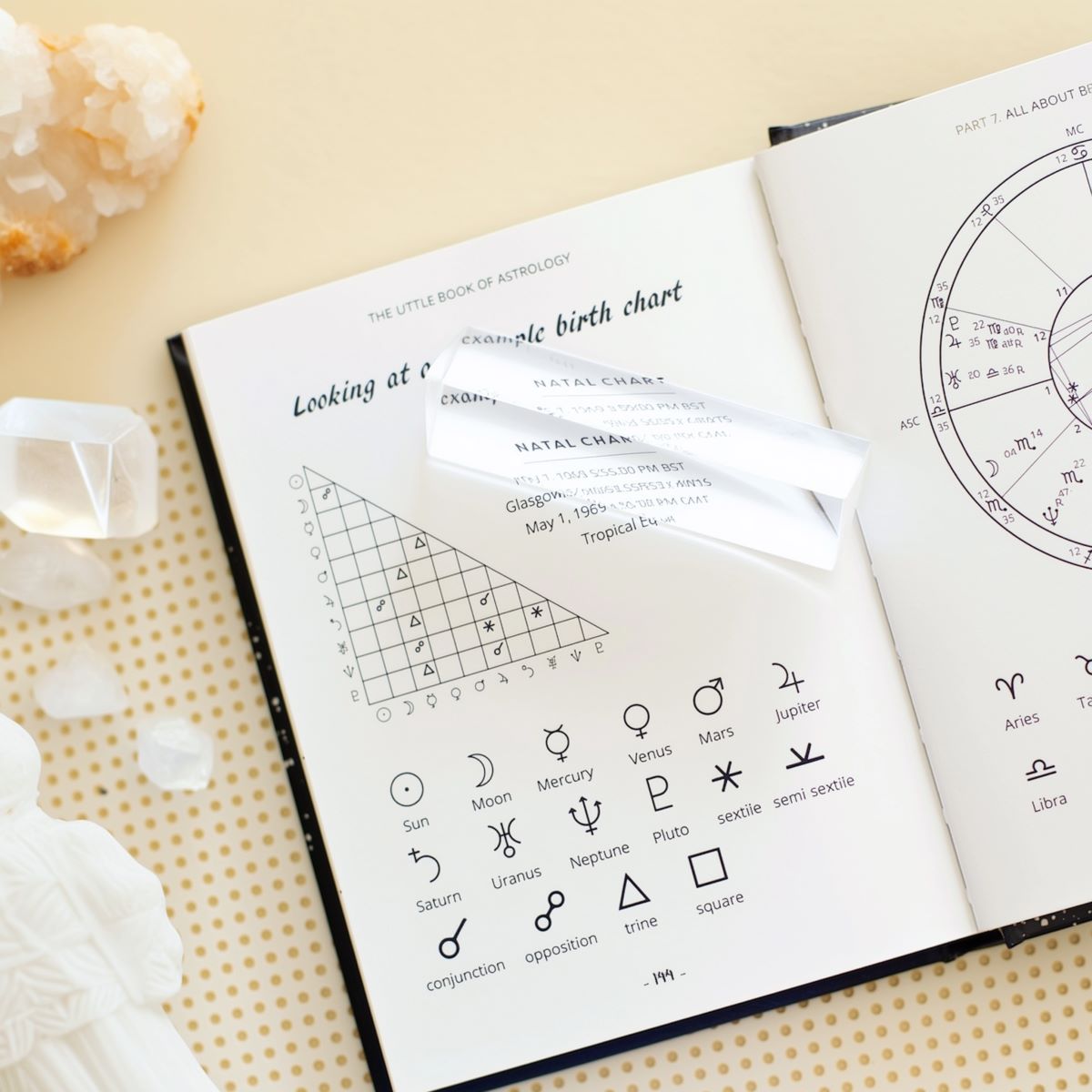I was in the middle of writing Capricorn’s Cost of Living, and I knew it would resonate with me. I’m a Sun in Pisces, but I felt like Capricorn might reflect my style more—especially since I have the Sun opposite…
This is something I came across in Doris Hebel’s Celestial Astrology. I’m not sure how true it is, but it’s said that different time periods in life are ruled by different planets. According to this idea, the Moon governs birth…
In astrology, certain aspects—like the conjunction, square, trine, and opposition—naturally draw focus. The sextile, on the other hand, lacks the tension or dramatic harmony of these angles, and because of that, it often slips by without much notice. The humble…...
It appears that in astrologers’ charts, planets play a notable role. The renowned Marinus, who lived in France three centuries ago, associated astrology with the planet Mercury. It feels like a natural starting point. Mercury is the planet of communication,…...
Astrology isn’t about predicting death. It’s not a fatalistic game. Often when people ask about death in astrology, what they’re often seeking isn’t the date and time of their mortal departure—they’re yearning for meaning, for reassurance, for understanding of transformation…....
In astrology, determining whether a natal chart suggests an introverted or extroverted personality isn’t straightforward. Traditional interpretations suggest that earth and water signs, being more ‘negative’, are associated with introspection, whereas fire and air signs, considered ‘positive’, exhibit more outgoing…...
The Sun in your chart represents the essence of who you are – your vitality, life force, and the guiding principle of your purpose. The sign your Sun occupies speaks to how you express your core self. A strong Sun…
Transits are those planetary peregrinations across the heavens that interact most potently with natal placements, for your birth chart is the blueprint of your soul. But progressions, the gentle unfolding of your chart over time, represent your inner evolution. They’re like…...
When it comes to the conjunction, it’s like two planets sidle up to each other, leaning close enough to tell one another’s secrets—or bicker, depending on their mood. Historically, astrologers took a broad-brush approach: “If they’re in the same sign,…...
Question: If I keep attracting creepy or strange men, do you know of something in the natal chart that could contribute to this? It’s a question for the ages, isn’t it? “Why me, Universe? Why am I a magnet for…...
To truly understand astrology, one must shed the glossy veneer of horoscopes that litter the back pages of magazines—those sugary, one-size-fits-all interpretations that claim to predict your love life based on nothing more than your Sun sign. Astrology, when stripped…...
In astrology, aspects are the angles formed between planets in a natal chart during a specific time, representing how these planetary energies interact. Each aspect connects one body to another, and through those connections they reflect our experiences here on…















 Mars in Aquarius: Sex drive
Mars in Aquarius: Sex drive
 Venus-Pluto Synastry: A Love So Powerful That It Might Just Kill Them
Venus-Pluto Synastry: A Love So Powerful That It Might Just Kill Them
 Sun Square Pluto Synastry: You’ve Got That Power Over Me
Sun Square Pluto Synastry: You’ve Got That Power Over Me
 Pluto in the 12th House
Pluto in the 12th House
 The Differences Between Synastry and Composite Charts!
The Differences Between Synastry and Composite Charts!
 Neptune in the 3rd House: The Power of Imagination
Neptune in the 3rd House: The Power of Imagination
 Moon Conjunct Pluto Synastry
Moon Conjunct Pluto Synastry
 The Cost of Living Through the Eyes of Aquarius
The Cost of Living Through the Eyes of Aquarius
 Composite Sun in Houses: Part 1
Composite Sun in Houses: Part 1
 Venus Trine Pluto: Dark Desires
Venus Trine Pluto: Dark Desires
 The Cost of Living Through the Eyes of Capricorn
The Cost of Living Through the Eyes of Capricorn
 Uranus Transits 8th the House: Rebirth from Chaos
Uranus Transits 8th the House: Rebirth from Chaos
 Uranus Transits the 4th House: The Chaotic Path to Personal Inner Growth
Uranus Transits the 4th House: The Chaotic Path to Personal Inner Growth
 Mercury Opposite Uranus Natal Aspect
Mercury Opposite Uranus Natal Aspect
 Jupiter Conjunct Pluto Synastry
Jupiter Conjunct Pluto Synastry
 Sun Square Jupiter Natal Aspect
Sun Square Jupiter Natal Aspect
 Moon Square Saturn Natal Aspect
Moon Square Saturn Natal Aspect
 Sun Opposite Pluto Natal Aspect
Sun Opposite Pluto Natal Aspect
 Mars Conjunct Pluto Synastry
Mars Conjunct Pluto Synastry
 Sun Opposite Uranus in Synastry: Voltage of the Heart
Sun Opposite Uranus in Synastry: Voltage of the Heart